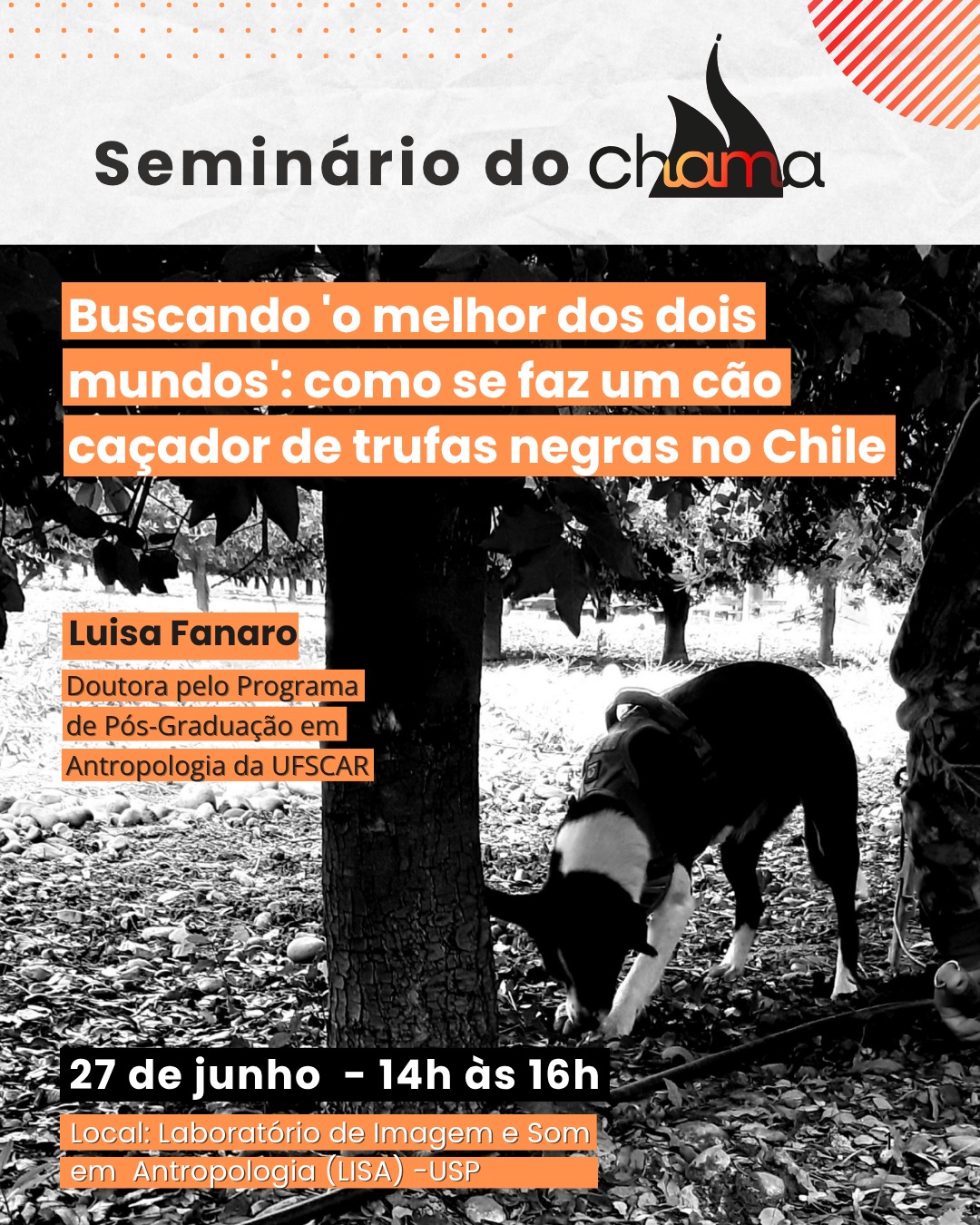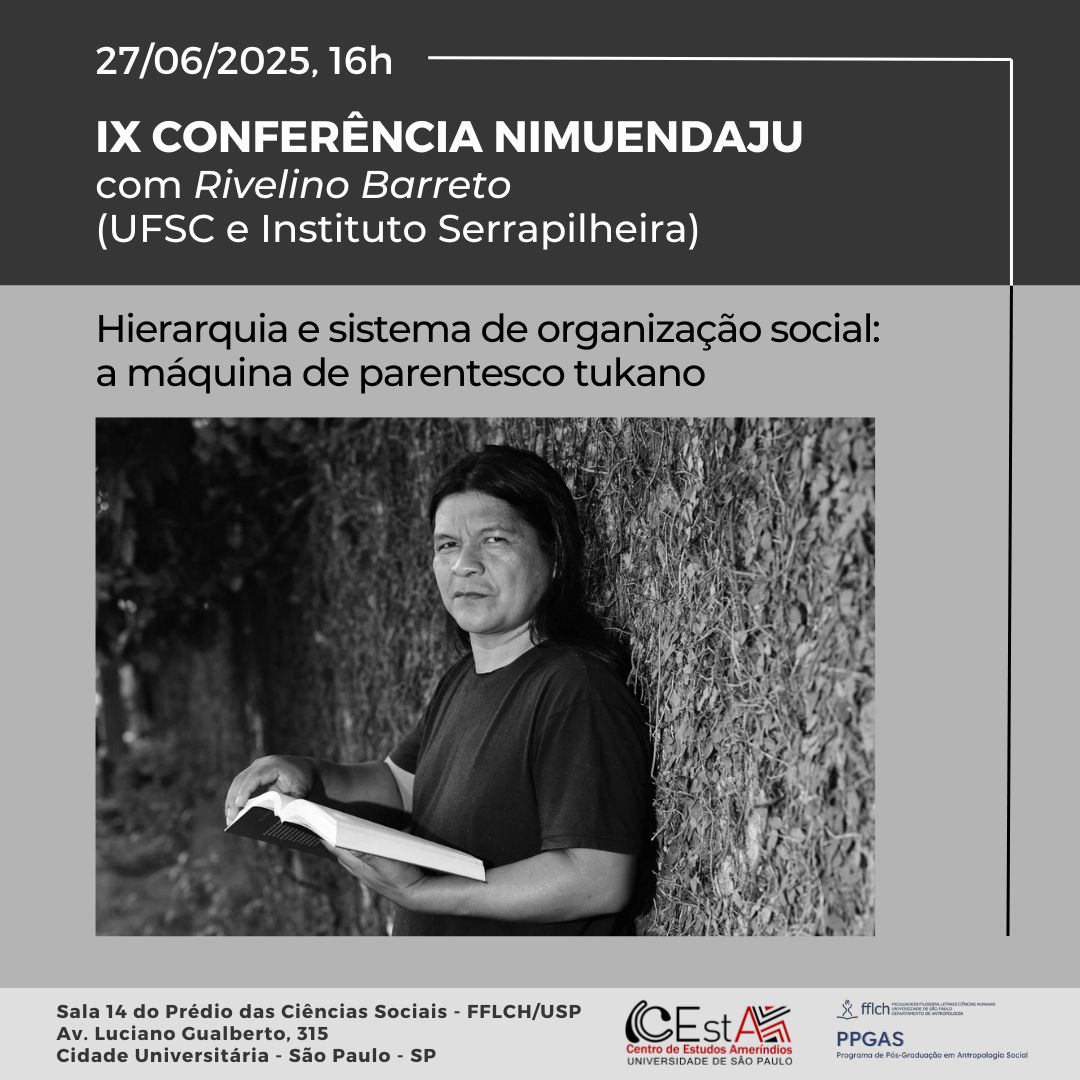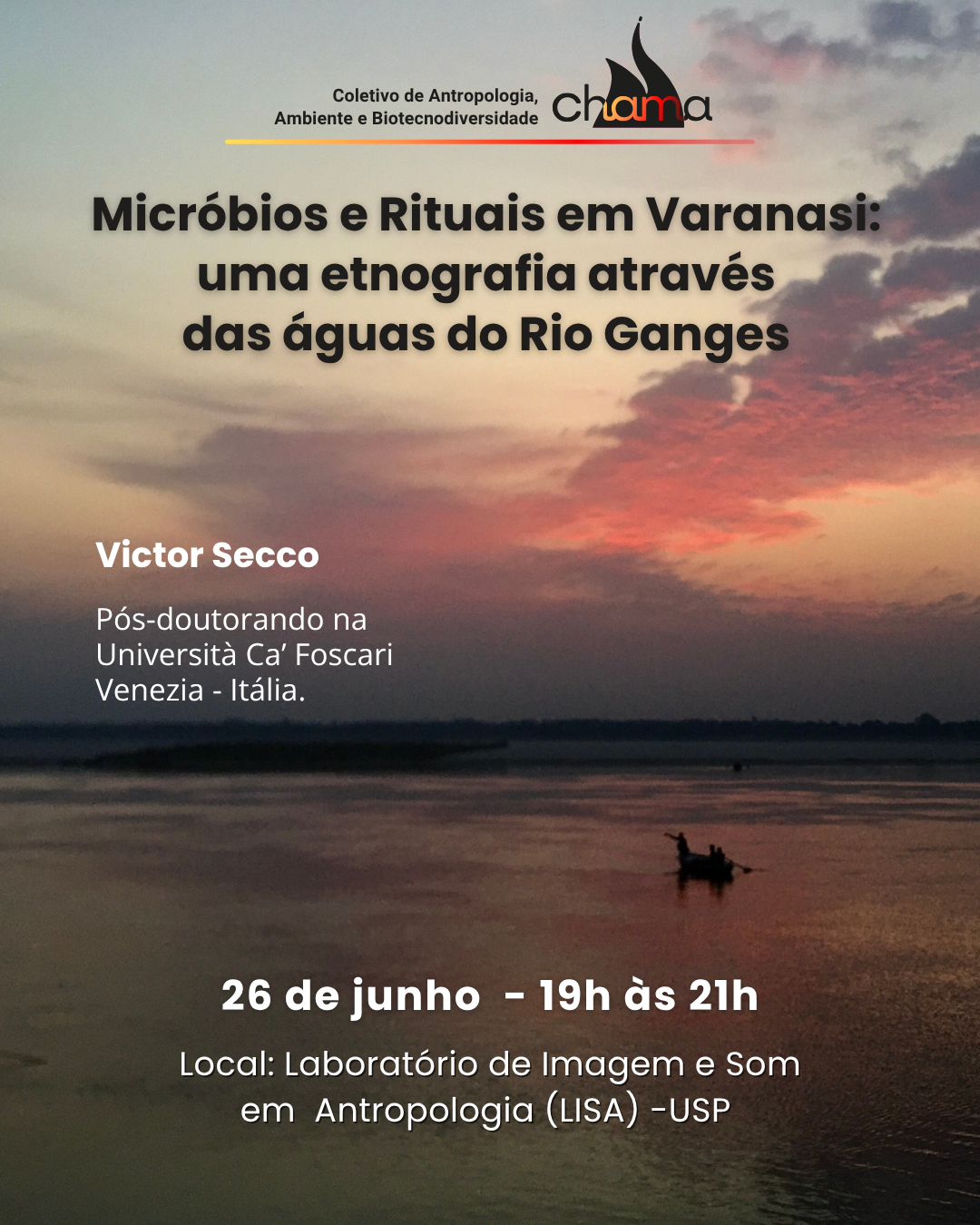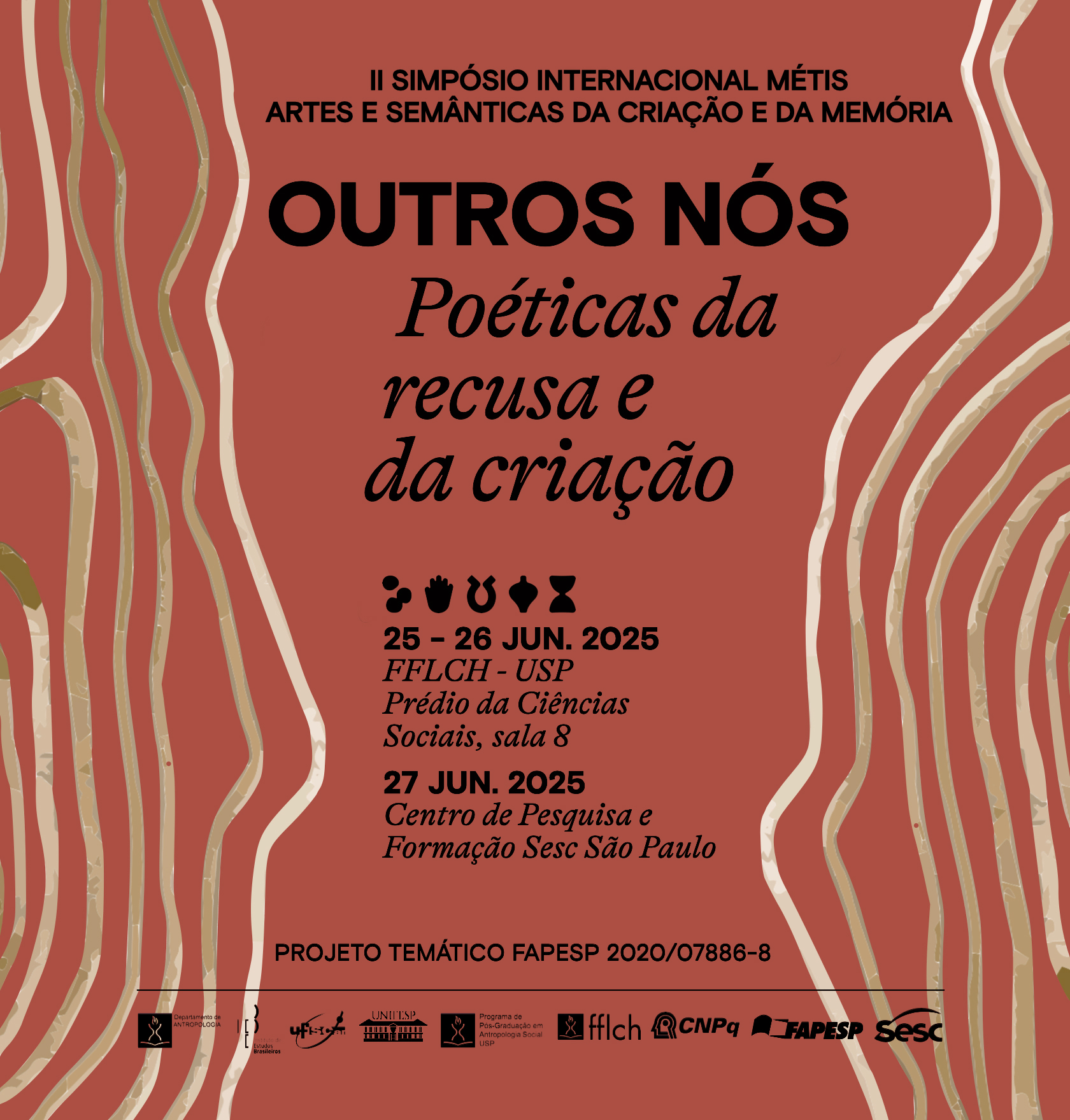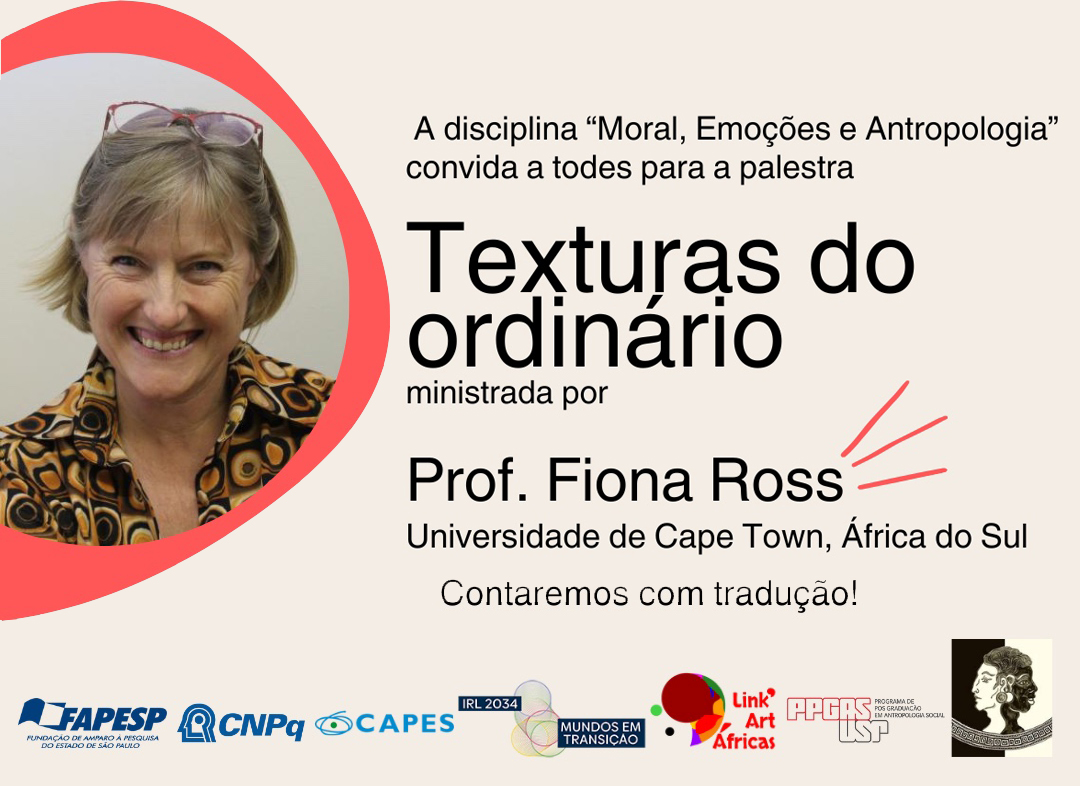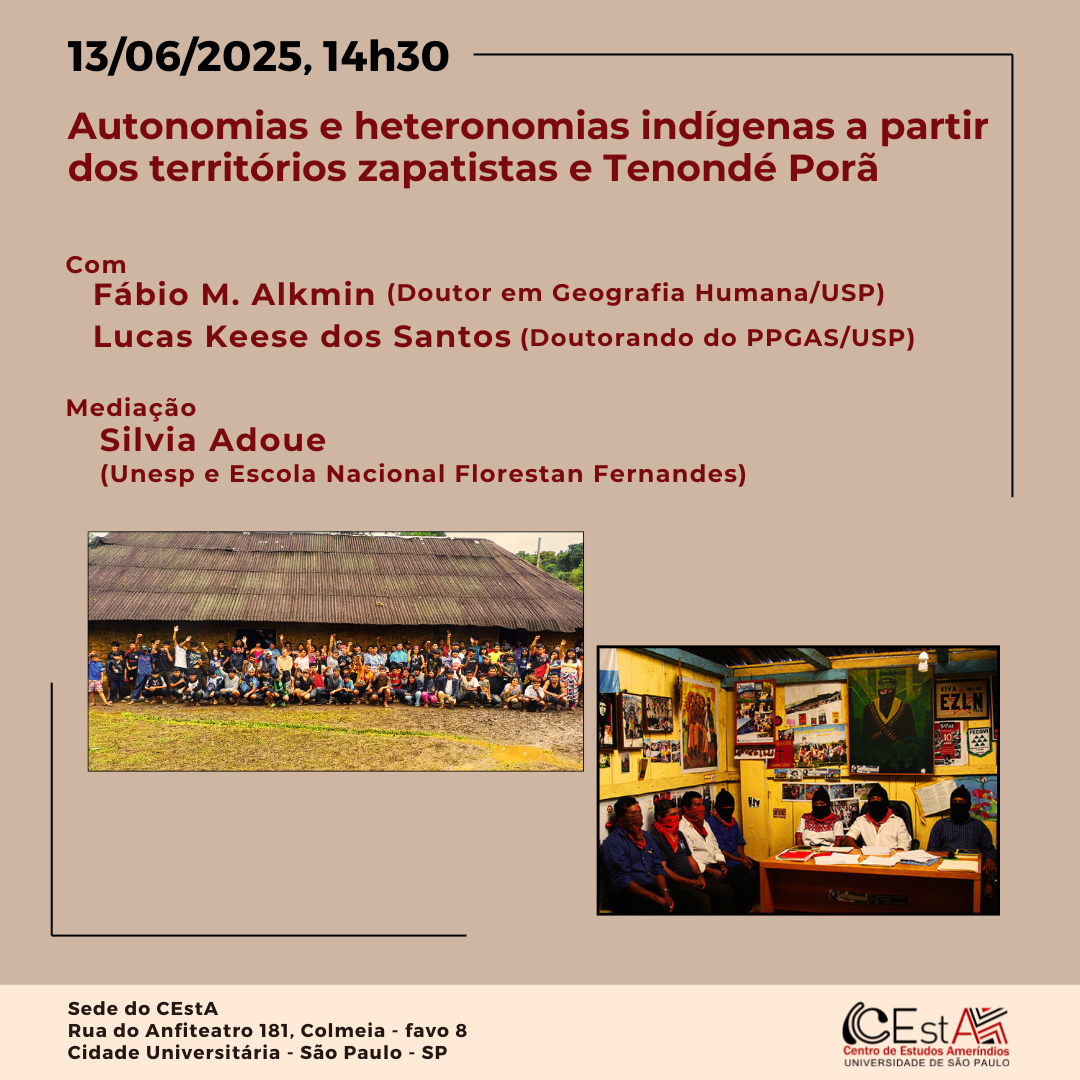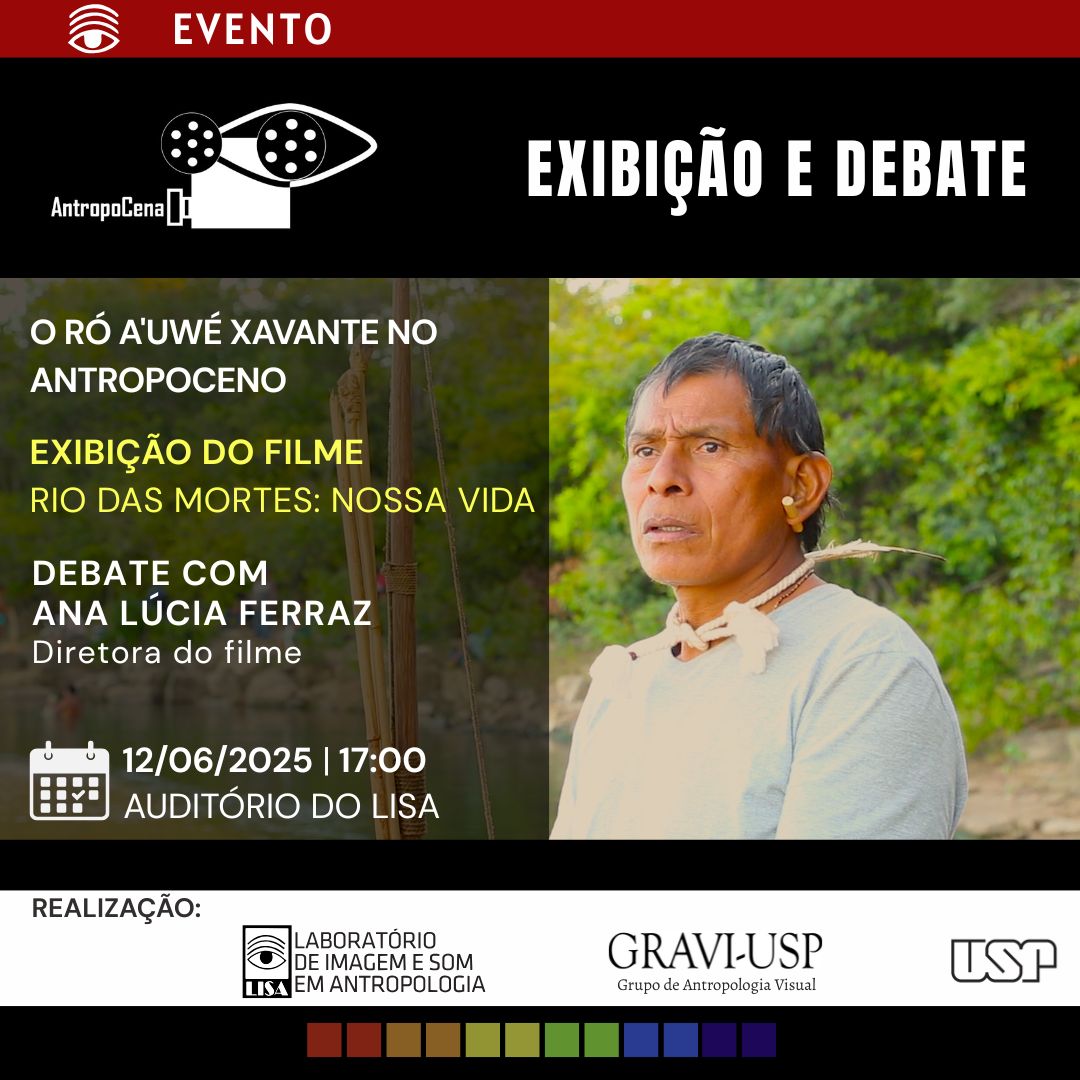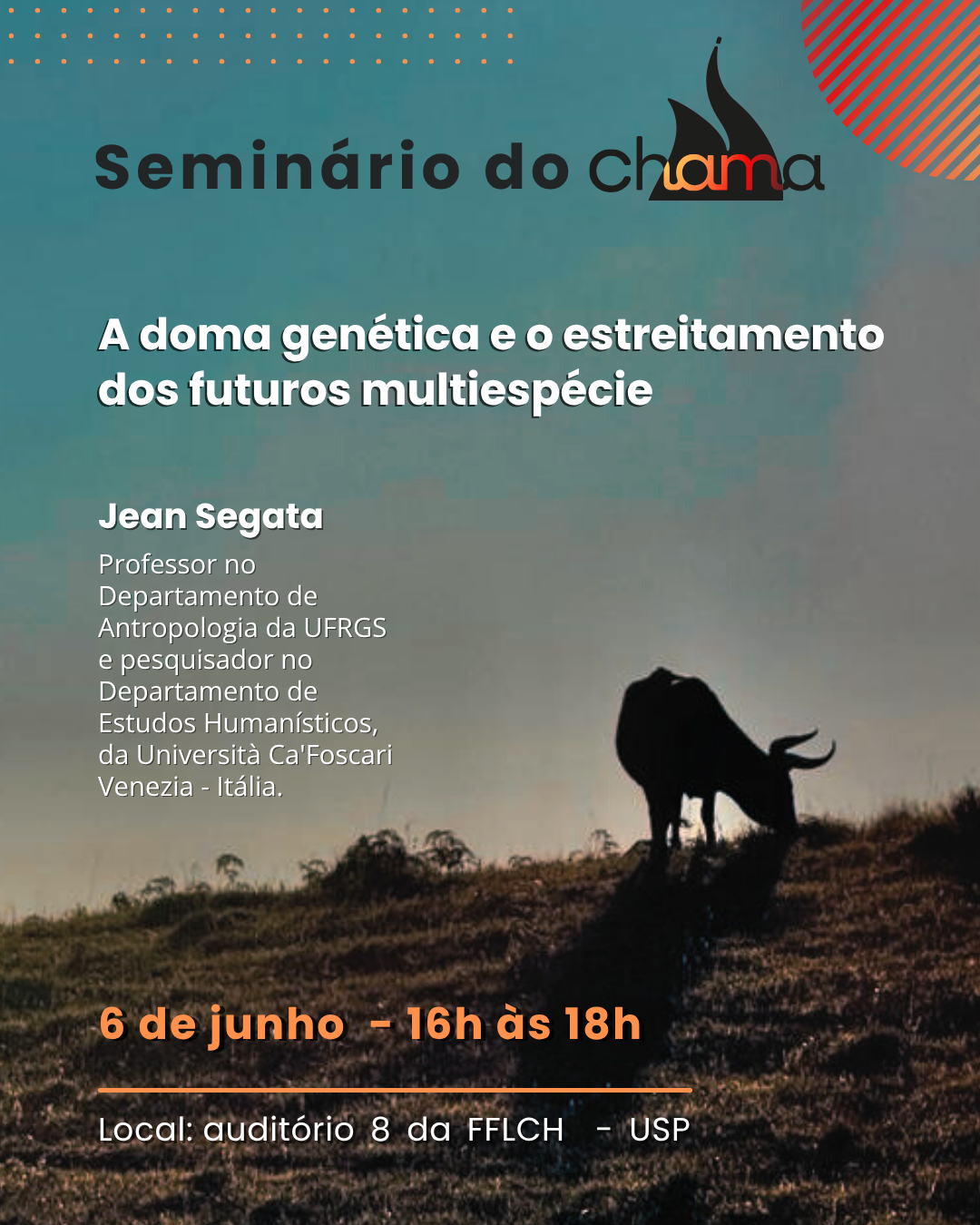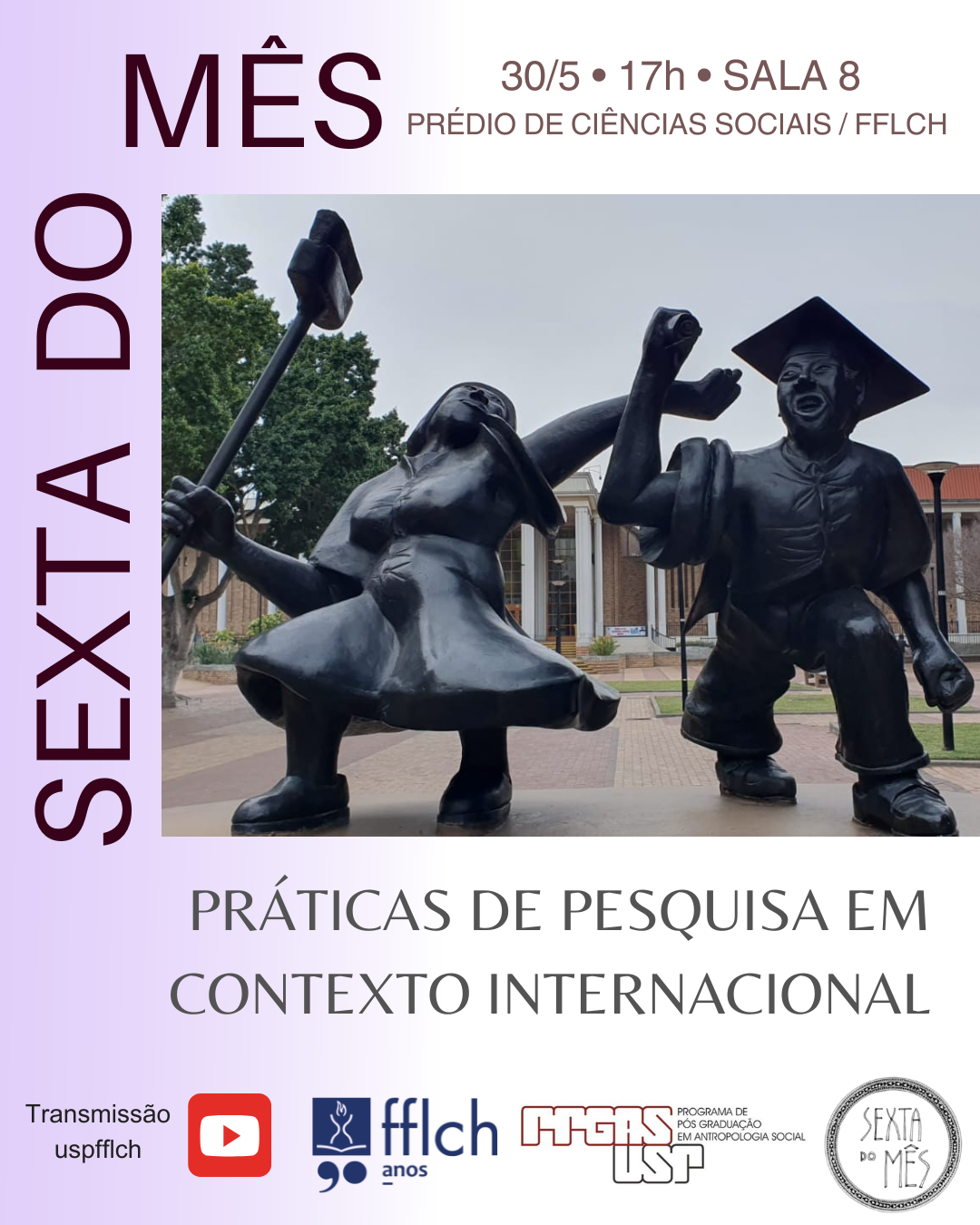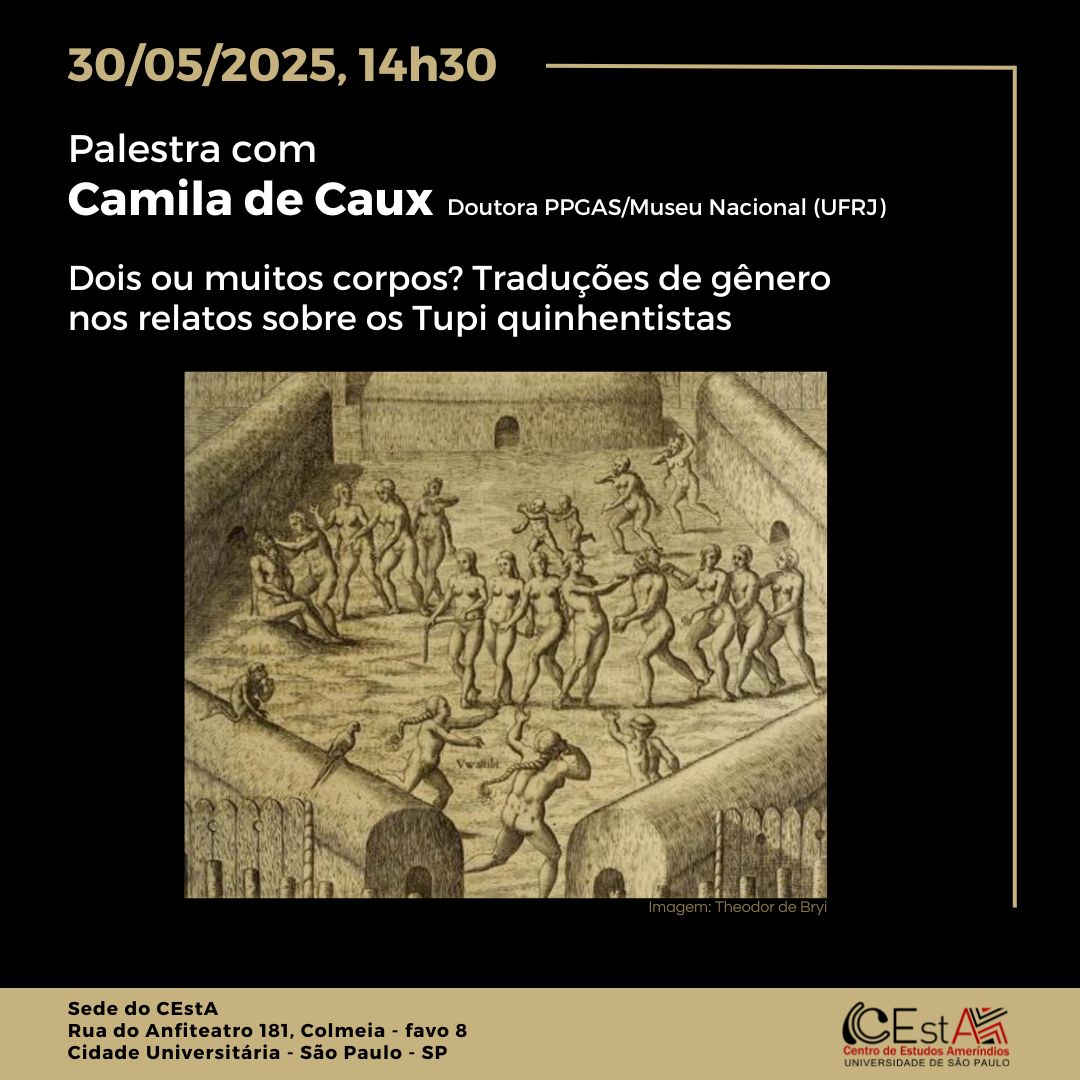Events
The CHAMA Anthropology Collective is holding a seminar entitled “Seeking ‘the best of both worlds’: how a black truffle hunting dog is made in Chile.”
In this presentation, Luísa Fanaro will discuss the practices of preparing human-canine pairs for hunting black truffles (Tuber melanosporum) in Chile. Based on an ethnography conducted during her doctoral research, defended in the Postgraduate Program in Anthropology at UFSCAR, the author shows that this process depends on a dual dynamic of communication: between dogs and truffles — an underground fungus — and between dogs and humans. If, on the one hand, it is necessary to “condition” or “manufacture” animals for this activity — through a process that involves choosing the parents, selecting the puppies and their subsequent training —, on the other hand, dogs also participate in the formation of the humans with whom they live and work, teaching them to interpret signals, gestures and sensory forms of perception.
Using field data, Fanaro argues that it is through the canine sense of smell that what is hidden underground can be revealed. It is dogs that connect to the smell of truffles, allowing humans access to an invisible, subterranean world. This world only becomes accessible thanks to interspecific communication: a sensitive dialogue mediated, on the one hand, by the odors that connect dogs and fungi and, on the other, by the joint construction of ways of understanding, translating and sharing this olfactory experience.
The Anthropology, Environment and Biotechnodiversity Collective (CHAMA) is a research group that was born in the Graduate Program in Social Anthropology (PPGAS -USP) and relies on classical studies of the anthropology of technology and the emerging anthropology of life to launch a program of teaching, research and scientific dissemination on biotechnodiversity, that is, the diversity of biotechnical actions and concepts.
In Brazil, as in other dimensions of the Highlands and Lowlands of the Amerindian scenario and context, each indigenous ethnic group has a specific, particular, independent and interdependent model of social organization guided by ethnic-wide methodologies that allow for a life followed by self-identification. Therefore, from the point of view of the ethnic scenario of Brazilian indigenous cultures, patrilineal systems and matrilineal systems prevailed as the foundations of self-identification of an ethnic group. More than being systems, they are in fact educational methods of a sociocultural framework. Given the scenario in which the demands of ethnic identifications become fundamental in the face of public policies and academic policies, necessary and differentiated as aspects of indigenous law, we intend to approach the theme Hierarchy and system of social organization: the Tukano kinship machine, as a way of providing debate based on the reading of the Tukano social organization experienced as an educational methodology and as a machine of indigenous social organization in the context of the northwest Amazon.
Victor Secco will present central themes of his doctoral research, defended at the University of Manchester (England), which investigates the intersections between science, religion and multispecies interactions, based on an ethnography conducted with Hindu priests and microbiologists in the city of Varanasi, in northern India. The Ganges River, which runs through the city, is simultaneously revered for its sacred waters and known for its high levels of pollution. While millions of people depend on these waters for religious rituals and daily activities, the river receives huge volumes of sewage and other pollutants every day. Microbiological research reveals the presence of several bacteria, including antibiotic-resistant strains, but also identifies therapeutic potential, such as the use of bacteriophages for treatments.
From this context, the ethnography conducted by Victor explores how the waters of the Ganges are conceived, manipulated and experienced, articulating relationships with microbes and deities. His analysis sheds light on the material and symbolic qualities of water, especially in light of the challenges posed by the COVID-19 pandemic. On the occasion, Victor will also give a brief presentation of his postdoctoral research underway at Università Ca’ Foscari Venezia, which investigates the relationships between humans and microorganisms in the emerging field of so-called planetary biology. The lecture is an outreach activity of the Anthropology, Environment and Biotechnodiversity Collective (CHAMA) and is part of the program of the discipline “Anthropology of Microorganisms”, which is being taught by postdoctoral researcher Leonardo Dupin in the Department of Anthropology at USP.
Other Us: Poetics of Refusal and Creation
The II Métis International Symposium - Arts and Semantics of Creation and Memory, whose theme is “Other Us: Poetics of Refusal and Creation”, aims to investigate theoretically and ethnographically the various conceptions of the notion of creation, exploring its polysemy and its relations with memory, in line with the objectives of the Fapesp Thematic Project (2020/07886-8) to which it is linked. Based on the successful experience of the I SIM (2024), this second symposium stands out for promoting the encounter between professionals of different generations and subfields within anthropology and related areas, such as history, archaeology, philosophy, architecture and arts. It also welcomes people from other areas of knowledge, in line with an intellectual and political perspective of establishing intra and extra-university dialogues.
The established outline, the result of reflections that took place in the first edition, is deliberately provocative. That is: it is about starting from the idea of refusal, removing its negative meaning and thinking of it as a creative force that calls for action. This proposition, associated with the "we" (in the double sense of subjects of knowledge and of plot) allows us to shift and deepen the debates on creative compositions, ecologies, materials, time and memory. The reflections thus open paths for contemporary practices and interpretations, sensitive to emerging social and environmental contexts. The II SIM foresees 3 conferences and 4 Cross-Cutting Meetings (ET). The experimental nature of the adopted format, which the idea of “cross-cutting meetings” seeks to translate, aims not only to cross, merge and metamorphose themes and specialties, but also to unfold interests and perspectives, at national and international levels, in order to hold a meeting that contributes to overcoming conventional boundaries of knowledge production in anthropology.
The event will take place in person and will be broadcast on the FFLCH YouTube channel.
EVENT PROGRAM (with transmission links)

06/25 (Wednesday)
USP, Social Sciences Building, room 8
9:30 am - 12:30 pm
Welcome greetings. Fernanda Arêas Peixoto (USP), Ana Claudia Duarte Rocha Marques (USP), Jorge Luis Mattar Villela (UFSCAR), Uirá Garcia (UNIFESP) and Stelio Marras (USP)
Lecture. Luisa Elvira Belaunde (Universidad Nacional Mayor de San Marcos, Peru). Cloths and belts: the art of inhabiting the Kichwa lama house in the Peruvian Upper Amazon
Link to broadcast: https://youtube.com/live/YZBGe4wuzbY
2:30 p.m. - 6 p.m.
Transversal Meeting 1: Temporalities, waiting, urgencies
Organization. Jesser Rodolfo de Oliveira Ramos (USP)
Mediation. Paulo Teixeira Iumatti (USP)
Conceptions of time weave together multiple creative ways of existing daily; time condenses and expands, according to the perception of its duration and, as a result, we experience the acceleration of urgency, the anguish of waiting and the attention of hesitation. This ET thus seeks to bring together diverse temporalities and geographies, discussing how past, present and future are experienced, especially in situations in which relationships are strained, realities are destabilized and memory is recruited. What is created in the intervals of waiting? What is rejected when one hesitates? What is created amidst the daily urgencies of many of us? How can we meet urgencies without sacrificing attention?
- Juliana Ramos Boldrin (UNICAMP). Between waiting and hoping: the temporalities of urgency in the daily life of a hospital ward
- Luiz Takayama (UFLA). Images of time in Bergson
- Mateus Henrique de Faria Pereira (UFOP). Considerations on the temporalities of the contemporary far-right: Bolsonarism and the pandemic urgency
Link to broadcast: https://youtube.com/live/MDaBNbOvBbo

26/06 (Thursday)
FFLCH – USP, Social Sciences Building, room 8
9am - 12pm
Transversal Meeting 2: Subjects, plots, technologies
Organization. Manuella Reale (USP)
Mediation. Uirá Felippe Garcia (UNIFESP)
In what ways - often ambiguous, sinuous or counterintuitive - do collectives refuse and at the same time compose with materials, techniques and technologies? This TM starts from this inquiry to confabulate connections and tensions between material, technological and narrative knowledge, seeking to reflect on modes of knowledge that intertwine with ways of doing, also inquiring how form narrates worlds, and how science and art intertwine. The aim is to undo, therefore, boundaries between knowledge and practices that tend to remain separate – weaving and scientific doing, for example – and also to pay attention to epistemological categories: their possibilities and uses.
- Tone Walford (UCL). Uncommon Knowledge and Common Knowledge: an experiment to intertwine environmental data justice
- Emerson Giumbelli (UFRGS). An Afro-religious ritual in a Catholic temple in Porto Alegre: creativity and paths of memory
- Fabíola Andréa Silva (USP). Ruination and construction in the Itaaka village: an Awaeté counternarrative of development
Link for streaming: https://youtube.com/live/AVajHBIoZR0
2pm - 4pm
Transversal Meeting 3: Earth, water, ecologies
Organization. Gabriela de Paula Marcurio (UFSCAR)
Moderation. Daniela Carolina Perutti (USP)
Works interested in an anthropology of life and ecological practices not only criticize the centrality of the concept of “human” in social theory, but also engage in dialogue with forms of knowledge and actions regarding what we conventionally call “environment,” in the face of the abrupt process of destruction and environmental aggression. Land and water appear as central elements in the struggles and refusals of various collectives, mobilizing a series of elements around these ideas, from forms of conservation in different environments, care and management of natural resources, and the recovery of diverse collectives and subjects that all point to the importance of practices and resistance as forms of ecological creation. Guided by these two strategic images, this ET seeks to relate experiences from diverse ecologies, and to consider multiple human and more-than-human interactions in environments where these elements (and others activated by them) appear as subjects and protagonists in the forms of creation, resurgences, and struggles, capable of establishing life itself in scenarios of composition and coexistence.
- Camila Pierobon (UFRJ). The modern division between land and water and its effects on contemporary urban space
- Fabiana Maizza (UNIFESP). Land policies: dissent and practices of care in the indigenous Amazon
4pm - 6pm
Conference. Pedro Pitarch Ramón (Complutense University from Madrid). Indigenous sensory communication creates beings
Stream link: https://youtube.com/live/

06/27 (Friday)
Sesc São Paulo Research and Training Center (Rua Dr. Plínio Barreto, 285 - 4th floor, Bela Vista - São Paulo)
*You must register on the website ofthe CPF Sesc
2:00 p.m. - 5:00 p.m.
Transversal Meeting IV. Creative trajectories and contaminations
Organization. Joaquim Pereira de Almeida Neto (USP)
Moderation. Fernanda Arêas Peixoto (USP)
With a focus on the transitory and indeterminate states of creations, this ET aims to explore compositions that take place in the course of creative processes; it involves paying attention to the contacts and contagions that are observed along specific paths, and to the mixtures, deviations and risks that are insinuated during creations. The bet is that the emphasis on paths associated with the idea of contamination (potent for allowing us to associate the ideas of propagation and danger) helps us to escape from reifications and dualisms - such as art and crafts, art and science, pure and applied knowledge - also inviting us to reject conceptual and methodological exclusivity. Couldn't the idea of creative contamination function as an instrument to probe associations between knowledge, techniques and disciplines? Wouldn't it have the additional merit of revealing rearrangements, divergences and resistances that accompany creative paths?
- Thiago Mota Cardoso (UFAM). Regenerative compositions: the indigenous art of (re)creating worlds
- Alline Torres Dias da Cruz (UFBA). An intervention in the "aesthetics of fracture": the imagery and sound creation of the short film Descompostura (RJ, 2020)
- Frederico Canuto (UFMG). Architectures of encounter: dust, earth, rattles and ounces
5:30pm - 7pm
Conference. Creuza Prumkwỳj Krahô. Cormã ihcahaj jopên xà: my work as a woman
Scientific Committee
Ana Claudia Duarte Rocha Marques (USP)
Fabiana Maizza (UNIFESP)
Fernanda Arêas Peixoto (USP)
Gabriela de Paula Marcurio (USFCAR)
Jesser Rodolfo de Oliveira Ramos (USP)
Joaquim Pereira de Almeida Neto (USP)
Jorge Luis Mattar Villela (UFSCAR)
Luisa Reis Castro (University of Southern California)
Manuella Reale (USP)
Mateus Oka de Farias (UNICAMP)
Natália Quiceno Toro (Universidad de Antioquia)
Paulo Teixeira Iumatti (USP)
Stelio Marras (USP)
Uirá Felippe Garcia (UNIFESP)
Organizing Committee
Fabiana Maizza (UNIFESP)
Fernanda Arêas Peixoto (USP)
Gabriela de Paula Marcurio (USFCAR)
Jesser Rodolfo de Oliveira Ramos (USP)
Joaquim Pereira de Almeida Neto (USP)
Manuella Reale (USP)
Mateus Oka de Farias (UNICAMP)
Stelio Marras (USP)
Uirá Felippe Garcia (UNIFESP)
The course "Morals, Emotions and Anthropology" invites everyone to the lecture "Textures of the Ordinary", given by Prof. Fiona Ross, from the University of Cape Town, South Africa.
The event will include translation!
Suggested Reading: Raw Life and Respectability Poverty and Everyday Life in a Postapartheid Community. In: Current Anthropology Volume 56, Supplement 11, October 2015
Based on the experience of Zapatista territories in Chiapas, Mexico, the presentation addresses indigenous autonomy as dynamic processes of territorialization and creation of their own forms of sociopolitical organization. In dialogue with other Latin American experiences, we will reflect on how the Zapatistas (re)construct, on a daily basis, autonomous spaces in opposition to the processes of heteronomy imposed by the State and capital.
With
Fábio M. Alkmin (PhD in Human Geography/USP)
Lucas Keese dos Santos (PhD student at PPGAS/USP)
Mediation: Silvia Adoue (Unesp and Escola Nacional Florestan Fernandes)
Suggested reading:
https://editoraelefante.com.
https://www.teses.usp.br/
Fábio M. Alkmin
Geographer, master and doctor in Human Geography from USP, with a career focused on research on indigenous territorial autonomy processes in Latin America. He is the author of the book Geografia da Autonomia (Editora Elefante, 2025) and is a member of international research networks, such as the DATALUTA Network (Brazil) and the GT Pueblos indígenas, autonomías y derechos colectivos of CLACSO.
Over the past twelve years, the Tenondé Porã Indigenous Land, located in the far south of the city of São Paulo, has grown from just two to 16 villages. In a context of struggle for demarcation, territorial redispersion and the resumption of megadiverse traditional crops, these new Guarani communities have dissolved the figure of the chief in favor of a council of leaders. Based on this scenario, and in dialogue with other experiences of indigenous autonomy, we propose a reflection on the notions of autonomy and heteronomy, not only in relations with the State and the non-indigenous world, but also within a territory shared by multiple subjects.
Suggested reading:
https://teiadospovos.org/
https://www.revistas.usp.br/
Lucas Keese dos Santos
Indigenist and PhD student in social anthropology (PPGAS-USP). He has worked with the Guarani
Mbya since 2009. He followed the movement for the reoccupation of the Tenondé Porã Indigenous Land from 2013 onwards and currently lives in the same territory, in the Kalipety tekoa. He is the author of the book “A esquiva do xondaro – movimento e ação política guarani mbya” (Elefante, 2021).
The film “Rio das Mortes: nossa vida” will be shown in the AntropoCena session on June 12, 2025, at 5:00 p.m., in the LISA auditorium, in partnership with the Visual Anthropology Group of the University of São Paulo (GRAVI-USP), and will feature the presence of Ana Lúcia Ferraz, Associate Professor of the Department of Anthropology and Coordinator of the Ethnographic Film Laboratory of the Fluminense Federal University (UFF).
Ana Lúcia graduated from USP and holds a master's degree in Anthropology (1999), a PhD in Sociology (2005), and a postdoctoral degree in Social Anthropology (2010). She currently works in the fields of Indigenous Ethnology and Visual Anthropology, and is the author of a series of ethnographic films, including, with the Guarani Nhandeva, Nhande Ywy/Nosso Território (2018) and Öwawe dahoimanadzé/Rio das Mortes: nossa vida (2024).
It is a film that explores the ancestral territory of the A’uwé uptabi people (Xavante) and presents their relationship with the waters of the Rio das Mortes, which is threatened by hydroelectric dams. The objective of this ethnography in progress is to establish the territoriality of the A’uwé Xavante by documenting their diverse practices with the river, their cosmological conceptions, and the centrality of hunting in the A’uwé way of life in the Cerrado.
AntropoCena is an initiative of LISA and aims to bring to the public the audiovisual production carried out by researchers from USP, through screenings and debates.
- The event will take place at Rua do Anfiteatro, nº 181, favo/sala 10, Cidade Universitária, SP
- Free entry, subject to space limitations
- No registrations
<p>On June 6 (Friday) there will be a seminar entitled "Genetic taming and the narrowing of multispecies futures", which will be taught by the professor of the Department of Anthropology at UFRGS and researcher at the Department of Humanistic Studies at Università Ca'Foscari Venezia, Dr. Jean Segata. The event will be held from 4 pm to 6 pm, in auditorium 8 of FFLCH - USP, and is promoted by the anthropology collective CHAMA.</p>
<p>Segata's research describes the transformations in the relationships between humans, cattle and the environment in the southern fields of Brazil, following the consolidation of British bull breeds, such as Angus, valued for the quality of their meat. The success of this breed in the tropics is the result of a prolonged process of genetic improvement, which combines advanced biotechnologies, precise zootechnical management, local knowledge and socio-environmental memory. More recently, the incorporation of genomics and mating algorithms has redesigned cattle breeding, modifying temporalities, bodies and reproductive functions. This technological arrangement, however, produces ambivalent effects: on the one hand, it strengthens genetic flows and positions Brazilian Angus as a distinct lineage in global meat markets; on the other hand, it contributes to the narrowing of multi-species futures, in which places like the Pampas and the Planalto Serrano Catarinense become not only new territories of innovation, but also stages of a silent drama, in which races considered economically inefficient disappear along with knowledge, traditions and ways of life, discontinued in the name of market-driven modernization.</p>
<p>The Anthropology, Environment and Biotechnodiversity Collective (CHAMA) is a research group that was created in the Postgraduate Program in Social Anthropology (PPGAS -USP) and focuses on classical studies of the anthropology of technology and the emerging anthropology of life to launch a program of teaching, research and scientific dissemination on biotechnodiversity, that is, the diversity of biotechnical actions and concepts.</p>
INVITATION | Friday of the Month invites everyone to the May thematic panel! ✨
Theme: “Research practices in an international context”
Anthropology has historically consolidated itself as a field of knowledge intrinsically intertwined with colonial projects, oriented towards the construction and investigation of a supposedly radical Other, conceived from epistemic and political asymmetries, often designed as if it were located overseas. The production of this knowledge has always been crossed by internal and external disputes, including financial ones, involving multiple scales — local, transnational and imperial — that put tension on the ways of knowing, representing and relating to otherness.
The objective of this panel is to share the paths and obstacles involved in conducting ethnographic research in contexts of radical alterity. The proposal of this panel is to reflect on whether this previous construction is acceptable and makes sense in the type of research we currently conduct, on the dynamics of fieldwork and the processes of cultural and linguistic adaptation, and also on the possibilities and challenges related to research funding.
👥 Invited guests:
* Thais Tiriba (PhD student at PPGAS/USP)
* Guilherme Amorim (Master's student at PPGAS/USP) • @gui.namorim
* Liza Acevedo Saenz (PhD student at PPGAS/USP)
* Laura Moutinho (Professor at the Department of Anthropology at FFLCH/USP) • @lalamou_
▶️ Link to broadcast: https://youtube.com/live/b_9F7e0HwLQ
The table is open to all audiences, so feel free to participate and bring colleagues.
📷 The statue, called the beginning and the end, is located in the main square of the University of the Western Cape campus and depicts a domestic worker and her graduate son, by artist David Hlongwane (photo by Thais Tiriba)
In this talk, I present the first reflections of an ongoing research project dedicated to investigating the processes of elaboration of gendered bodies among the Tupi peoples of the sixteenth century. By tracing the vocabulary of substances abundantly present in the chroniclers’ accounts—references to blood, semen, cauim, puba, among others—I seek to evoke echoes of a cosmopolitics of substances, in which gendered bodies were formed by voluntary, collective, and densely conceptualized acts. In this first approach, I propose a panoramic view: I begin with the role of substances and their flows in the rituals of post-menarche and post-homicide seclusion, which aimed at the formation of adult male and female bodies, and I conclude with a reflection on some figures that escaped the binary colonial technology of genders used by the chroniclers: the transgender figures “tebira” and “çacoaimbeguira,” the young “panema” and the old “uainuy.”


